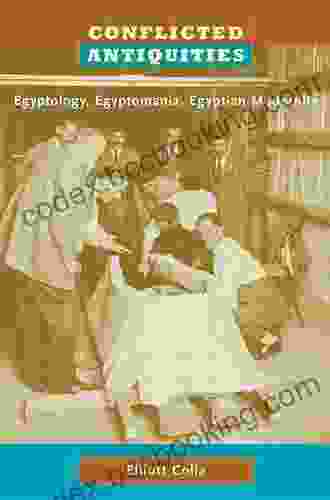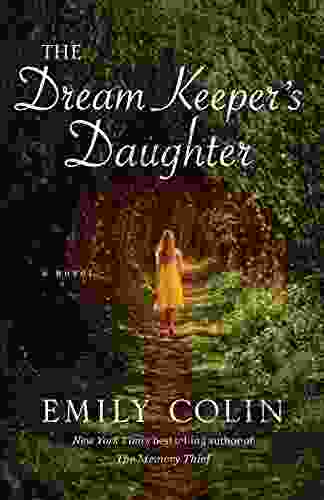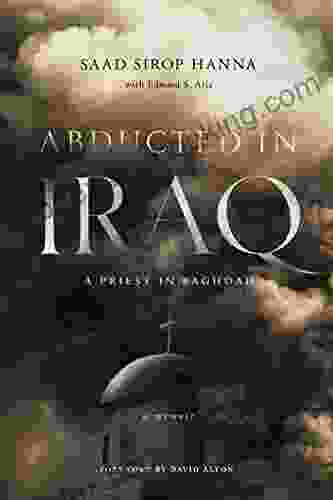Conflicted Antiquities: Egyptology, Egyptomania, Egyptian Modernity

By [Author's Name]
Conflicted Antiquities: Egyptology, Egyptomania, Egyptian Modernity explores the complex and often contradictory ways in which Egypt's ancient past has been appropriated and contested in the modern world. The book examines how Egyptology, the study of ancient Egypt, has been shaped by Western imperialism and colonialism, and how it has contributed to the construction of Egyptian national identity. It also explores the ways in which ancient Egyptian artifacts have been looted, collected, and displayed in museums around the world, and how these practices have raised questions about ownership, repatriation, and cultural heritage.
5 out of 5
| Language | : | English |
| File size | : | 7404 KB |
| Text-to-Speech | : | Enabled |
| Screen Reader | : | Supported |
| Enhanced typesetting | : | Enabled |
| X-Ray for textbooks | : | Enabled |
| Word Wise | : | Enabled |
| Print length | : | 360 pages |
Conflicted Antiquities is a timely and important contribution to the study of Egyptology, Egyptomania, and Egyptian modernity. It provides a nuanced and comprehensive analysis of the ways in which Egypt's ancient past has been used and abused in the modern world, and it offers a fresh perspective on the complex relationship between archaeology, colonialism, and national identity.
Table of Contents
- Egyptology and the West
- Egyptomania and the Construction of Egyptian National Identity
- The Looting of Egyptian Antiquities
- The Display of Egyptian Antiquities in Museums
- Repatriation and Cultural Heritage
Egypt's ancient past has fascinated people for centuries. In the 19th century, the rediscovery of ancient Egyptian civilization sparked a wave of Egyptomania, or fascination with all things Egyptian. This fascination was fueled by the work of archaeologists such as Jean-François Champollion, who deciphered the hieroglyphs, and by the discovery of spectacular tombs and temples, such as the tomb of Tutankhamun. Egyptomania had a profound impact on Western culture, influencing everything from art and architecture to fashion and popular culture.
However, Egyptomania was also a product of Western imperialism and colonialism. European powers, such as Britain and France, saw Egypt as a source of valuable antiquities, and they looted countless artifacts from the country. These artifacts were then displayed in museums in Europe and America, where they served to glorify the colonizers and to promote the idea that Western civilization was superior to other cultures.
In the 20th century, Egyptomania began to decline, but the study of ancient Egypt continued to be shaped by Western perspectives and values. Egyptologists, for example, often focused on the study of monumental architecture and royal tombs, while neglecting the lives of ordinary Egyptians. This bias has led to a distorted understanding of ancient Egyptian civilization.
In recent years, there has been a growing movement to repatriate looted artifacts to their countries of origin. This movement has been led by scholars and activists who argue that these artifacts are part of the cultural heritage of the countries from which they were stolen. The repatriation of looted artifacts is a complex and controversial issue, but it is an important step towards correcting the injustices of the past.
Egyptology and the West
Egyptology is the study of ancient Egyptian civilization. It is a relatively young discipline, dating back to the 19th century. However, the roots of Egyptology can be traced back to the ancient Greeks and Romans, who were fascinated by the pyramids and other monuments of ancient Egypt.
In the 19th century, the rediscovery of ancient Egyptian civilization sparked a wave of Egyptomania in Europe. This fascination was fueled by the work of archaeologists such as Jean-François Champollion, who deciphered the hieroglyphs, and by the discovery of spectacular tombs and temples, such as the tomb of Tutankhamun. Egyptomania had a profound impact on Western culture, influencing everything from art and architecture to fashion and popular culture.
However, Egyptology was also a product of Western imperialism and colonialism. European powers, such as Britain and France, saw Egypt as a source of valuable antiquities, and they looted countless artifacts from the country. These artifacts were then displayed in museums in Europe and America, where they served to glorify the colonizers and to promote the idea that Western civilization was superior to other cultures.
The influence of Western imperialism and colonialism on Egyptology can be seen in the ways in which archaeologists have interpreted ancient Egyptian civilization. For example, archaeologists have often focused on the study of monumental architecture and royal tombs, while neglecting the lives of ordinary Egyptians. This bias has led to a distorted understanding of ancient Egyptian civilization.
Egyptomania and the Construction of Egyptian National Identity
Egyptomania had a profound impact on the construction of Egyptian national identity. In the 19th century, Egyptian intellectuals and reformers began to look to ancient Egypt for inspiration in their efforts to modernize the country. They saw in ancient Egypt a glorious past that could be used to legitimize their claims for independence from Western powers.
The Egyptian government also played a role in promoting Egyptomania. In the early 20th century, the government established the Department of Antiquities, which was responsible for the excavation and preservation of ancient Egyptian sites. The government also built new museums to house the country's growing collection of antiquities.
Egyptomania helped to create a sense of national pride among Egyptians. It also helped to promote the idea that Egypt was a unique and special country with a long and distinguished history. This sense of national pride has been a powerful force in Egyptian politics and culture to this day.
The Looting of Egyptian Antiquities
The looting of Egyptian antiquities is a long and tragic story. It began in the 19th century, when European archaeologists and collectors began to plunder the country's tombs and temples. This looting was often carried out with the connivance of the Egyptian government, which was eager to profit from the sale of antiquities.
The looting of Egyptian antiquities continued throughout the 20th century. In the 1920s and 1930s, the tomb of Tutankhamun was looted by British archaeologist Howard Carter. In the 1970s and 1980s, a wave of looting occurred in the Nile Delta, as farmers and villagers dug up and sold antiquities to make a quick profit.
The looting of Egyptian antiquities has had a devastating impact on the country's cultural heritage. Many of the country's most valuable artifacts have been lost or stolen, and many of its archaeological sites have been damaged. The looting of antiquities has also made it difficult for archaeologists to study ancient Egyptian civilization.
The Display of Egyptian Antiquities in Museums
The display of Egyptian antiquities in museums is a complex and controversial issue. On the one hand, museums provide a safe and secure environment for these artifacts, and they make them accessible to the public. On the other hand, some critics argue that museums are perpetuating the colonial legacy of Egyptology, and that they are displaying these artifacts in a way that is disrespectful to Egyptian culture.
There are a number of different ways to display Egyptian antiquities in museums. Some museums choose to display them in chronological Free Download, while others group them by theme or region. Some museums also use interactive displays to help visitors learn more about ancient Egyptian civilization.
The way in which Egyptian antiquities are displayed in museums can have a significant impact on the public's understanding of ancient Egypt. It is important for museums to be aware of the colonial legacy of Egyptology, and to display these artifacts in a way that is respectful to Egyptian culture.
Repatriation and Cultural Heritage
The repatriation of looted artifacts is a complex and controversial issue. On the one hand, it is clear that these artifacts belong to the countries from which they were stolen. On the other
5 out of 5
| Language | : | English |
| File size | : | 7404 KB |
| Text-to-Speech | : | Enabled |
| Screen Reader | : | Supported |
| Enhanced typesetting | : | Enabled |
| X-Ray for textbooks | : | Enabled |
| Word Wise | : | Enabled |
| Print length | : | 360 pages |
Do you want to contribute by writing guest posts on this blog?
Please contact us and send us a resume of previous articles that you have written.
 Book
Book Novel
Novel Page
Page Chapter
Chapter Text
Text Story
Story Genre
Genre Reader
Reader Library
Library Paperback
Paperback E-book
E-book Magazine
Magazine Newspaper
Newspaper Paragraph
Paragraph Sentence
Sentence Bookmark
Bookmark Shelf
Shelf Glossary
Glossary Bibliography
Bibliography Foreword
Foreword Preface
Preface Synopsis
Synopsis Annotation
Annotation Footnote
Footnote Manuscript
Manuscript Scroll
Scroll Codex
Codex Tome
Tome Bestseller
Bestseller Classics
Classics Library card
Library card Narrative
Narrative Biography
Biography Autobiography
Autobiography Memoir
Memoir Reference
Reference Encyclopedia
Encyclopedia Ilarion Merculieff
Ilarion Merculieff Kim West
Kim West Meriel Thurstan
Meriel Thurstan Ellen Meloy
Ellen Meloy Susan Tebos
Susan Tebos Karen Tumulty
Karen Tumulty Taishi Tsutsui
Taishi Tsutsui Ellie Snowdon
Ellie Snowdon Marisa Anne Bass
Marisa Anne Bass Timothy Andrews Sayle
Timothy Andrews Sayle The 60 Minutes Summary
The 60 Minutes Summary S Paige Baty
S Paige Baty Sherry Blackman
Sherry Blackman Emma Ugarelli
Emma Ugarelli Suzette D Harrison
Suzette D Harrison Vijay Verma
Vijay Verma Moon Travel Guides
Moon Travel Guides Emily Thiede
Emily Thiede Emily Journey
Emily Journey Emily Herring Wilson
Emily Herring Wilson
Light bulbAdvertise smarter! Our strategic ad space ensures maximum exposure. Reserve your spot today!
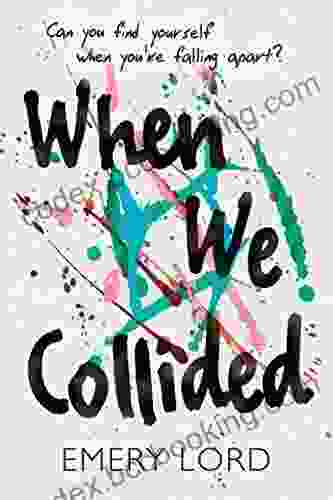
 Floyd RichardsonWhen We Collided by Emery Lord: A Heartbreaking and Unforgettable Love Story
Floyd RichardsonWhen We Collided by Emery Lord: A Heartbreaking and Unforgettable Love Story Corey GreenFollow ·12.9k
Corey GreenFollow ·12.9k Derek CookFollow ·10.6k
Derek CookFollow ·10.6k Davion PowellFollow ·3.6k
Davion PowellFollow ·3.6k Julian PowellFollow ·7.8k
Julian PowellFollow ·7.8k Forrest BlairFollow ·13k
Forrest BlairFollow ·13k DeShawn PowellFollow ·7.2k
DeShawn PowellFollow ·7.2k Nathaniel PowellFollow ·12.5k
Nathaniel PowellFollow ·12.5k Francisco CoxFollow ·17.5k
Francisco CoxFollow ·17.5k

 Isaias Blair
Isaias BlairEscape to Sunrise Cottage: A Captivating Read You Won't...
Are you ready for a...
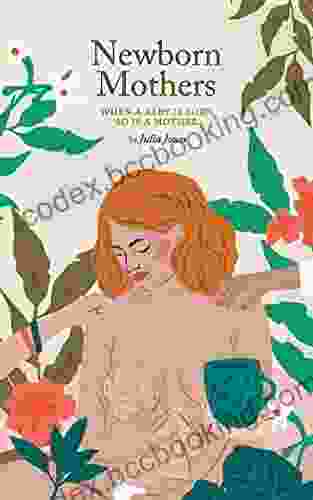
 Bradley Dixon
Bradley DixonWhen Baby Is Born, So Is Mother: A Comprehensive Guide to...
Giving birth is a...

 Mario Simmons
Mario SimmonsPhotographic Journal of Cruise Around South America: A...
Embark on an Extraordinary Expedition ...

 Langston Hughes
Langston HughesDream Achieved: Unlocking the Power Within to Make Your...
In the tapestry...
5 out of 5
| Language | : | English |
| File size | : | 7404 KB |
| Text-to-Speech | : | Enabled |
| Screen Reader | : | Supported |
| Enhanced typesetting | : | Enabled |
| X-Ray for textbooks | : | Enabled |
| Word Wise | : | Enabled |
| Print length | : | 360 pages |


